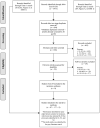The Impact of Infectious Disease-Related Public Health Emergencies on Suicide, Suicidal Behavior, and Suicidal Thoughts
- PMID: 33063542
- PMCID: PMC8689932
- DOI: 10.1027/0227-5910/a000753
The Impact of Infectious Disease-Related Public Health Emergencies on Suicide, Suicidal Behavior, and Suicidal Thoughts
Abstract
Background: Infectious disease-related public health emergencies (epidemics) may increase suicide risk, and high-quality evidence is needed to guide an international response. Aims: We investigated the potential impacts of epidemics on suicide-related outcomes. Method: We searched MEDLINE, EMBASE, PsycInfo, CINAHL, Scopus, Web of Science, PsyArXiv, medRxiv, and bioRxiv from inception to May 13-16, 2020. Inclusion criteria: primary studies, reviews, and meta-analyses; reporting the impact of epidemics; with a primary outcome of suicide, suicidal behavior, suicidal ideation, and/or self-harm. Exclusion criteria: not concerned with suicide-related outcomes; not suitable for data extraction. PROSPERO registration: #CRD42020187013. Results: Eight primary papers were included, examining the effects of five epidemics on suicide-related outcomes. There was evidence of increased suicide rates among older adults during SARS and in the year following the epidemic (possibly motivated by social disconnectedness, fears of virus infection, and concern about burdening others) and associations between SARS/Ebola exposure and increased suicide attempts. A preprint study reported associations between COVID-19 distress and past-month suicidal ideation. Limitations: Few studies have investigated the topic; these are of relatively low methodological quality. Conclusion: Findings support an association between previous epidemics and increased risk of suicide-related outcomes. Research is needed to investigate the impact of COVID-19 on suicide outcomes.
Keywords: COVID-19; epidemics; pandemics; self-harm; suicide.
Figures

References
-
- Allen, L., O'Connell, A., & Kiermer, V. (2019; ). How can we ensure visibility and diversity in research contributions? How the Contributor Role Taxonomy (CRediT) is helping the shift from authorship to contributorship. Learned Publishing, 32(1), 71–74. 10.1002/leap.1210 - DOI
-
- Ammerman, B. A., Burke, T. A., Jacobucci, R., & McClure, K. (2020). Preliminary investigation of the association between COVID-19 and suicidal thoughts and behaviors in the U.S. PsyArXiv Preprint. 10.31234/osf.io/68djp - DOI - PubMed
-
- Black Dog Institute. (2020). Mental health ramifications of COVID-19: The Australian context. https://www.blackdoginstitute.org.au/wp-content/uploads/2020/04/20200319...

